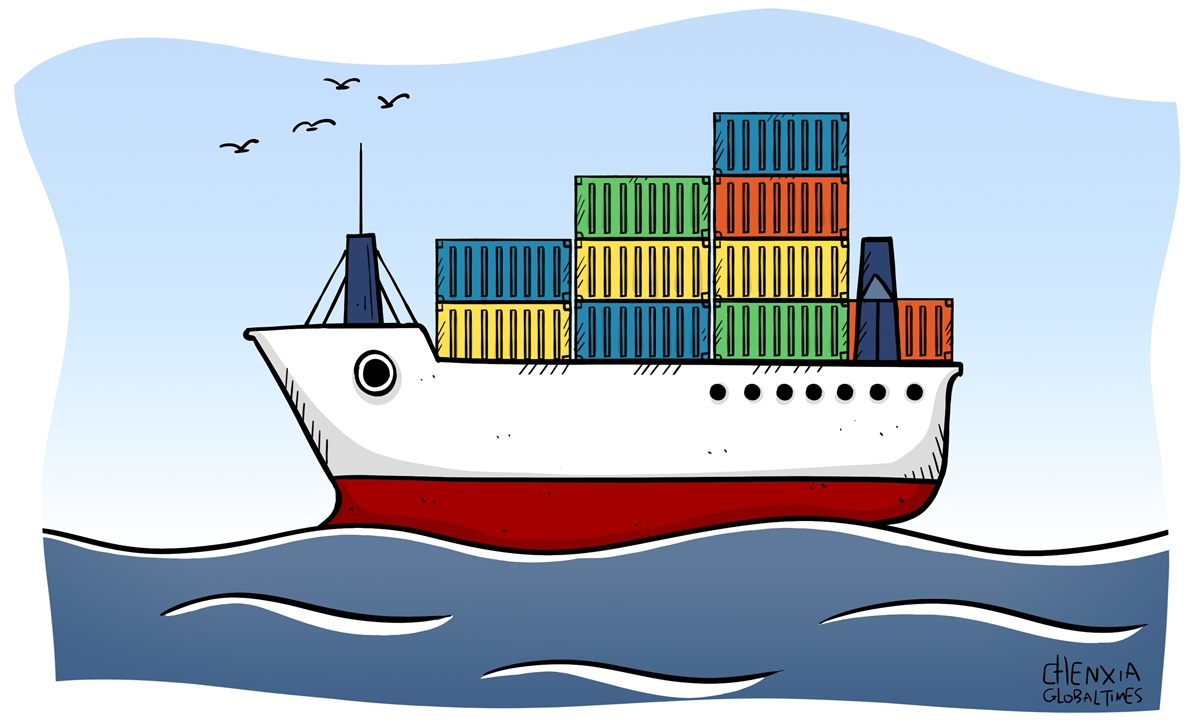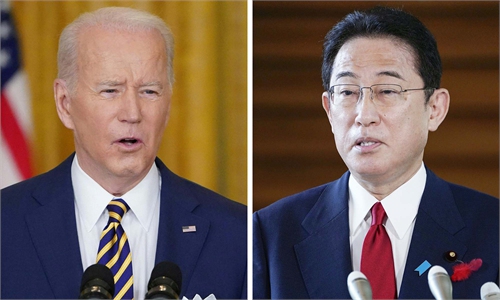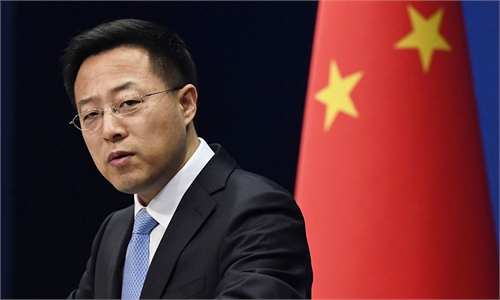COMMENTS / EXPERT ASSESSMENT
Closer trade ties with China will benefit Japan’s economic recovery

Illustration: Chen Xia/Global Times
Japan's Cabinet Office recently released a World Economic Trends report, noting that Japan imports a higher share of Chinese products than other major economies and warning of so-called risks caused by the country's "over dependency" on Made-in-China.
The report analyzed the structure of trade between the world's major economies and China, and found that, out of about 5,000 imported categories, Japan has 1,133 highly dependent on imports from China, while the US has 590 and Germany has 250, according to a report by Japan-based Nikkei Asia
The so-called "over dependency" on Chinese goods as some in foreign media highlighted is untenable, and such notion is toxic for bilateral cooperation and for Japan's struggling recovery from the pandemic. Both the East Asian economies are major traders in the world. And the so-called higher share of imports or exports, in fact, deserves no excessive concerns, especially given Japan as an export-oriented economy and China as an unrivalled huge market and a world-class manufacturing hub.
As two leading economies in Asia, China and Japan have nurtured a close economic and trade ties for many decades, benefiting both economies, enormously. In spite of the COVID-19 pandemic, bilateral trade between the two countries totaled $371.4 billion in 2021, which was a new record high and demonstrating the strong resilience of the bilateral trading ties.
And behind the close commodity trading, more importantly, it is the deeply interlaced cooperation across industrial chains. Japanese firms have been investing heavily overseas, with about a quarter of their total output produced outside of Japan, according to a study. China and Southeast Asian economies are major destinations for Japanese investors; and as China is growing into a world-class huge consumption market, many Japanese firms producing in China are now producing for China's market as well.
In terms of its high share of imports from China, it has also benefited the Japanese economy massively. China is the largest trading partner for more than 120 economies in the world, including Japan. It has been delivering high-quality products for global consumers at very competitive prices, meeting the needs of consumers to the greatest extent.
It is true that nowadays it is difficult for industrial producers elsewhere to find an alternative supplier other than China, just because of Chinese enterprises' manufacturing capability. Actually, Japan ought to enhance its economic and trade ties with China to accelerate its recovery in the post-COVID era.
Also, closer economic ties among China, Japan and South Korea are in line with the trend of closer industrial integration throughout the Northeast Asian region.
Both China and Japan are members of the Regional Comprehensive Economic Partnership (RCEP) which recently came into effective as the largest free trade agreement in the world. Trade within the RCEP region accounts for nearly 50 percent of Japan's total trade, the International Finance News reported, citing an official from the Japan External Trade Organization.
Observers have pointed out that the RCEP would bring about a growing impact over trade cooperation between China and Japan, which have no bilateral free trade agreement yet. Tariffs on over 90 percent of the commodity trade between the two countries will eventually be eliminated, generating great opportunities for enterprises from both sides which will add growing momentum for both economies, especially for Japan which has seen unsatisfying recovery from the coronavirus public health crisis, compared with other major economies in the world.
Truly, the voices hyping "over dependency" risks of trading with China will remain in Japan, against the backdrop of the US government's strategy to contain China's rise in varied areas. However, for Japan to blindly follow the heels of the US goes against the essential interests of Japanese economy in the long run. Rather than echoing such toxic rhetoric, rational Japanese politicians and media should encourage a healthier and open attitude to develop closer trade ties with China.
The author is an editor with the Global Times. bizopinion@globaltimes.com.cn



